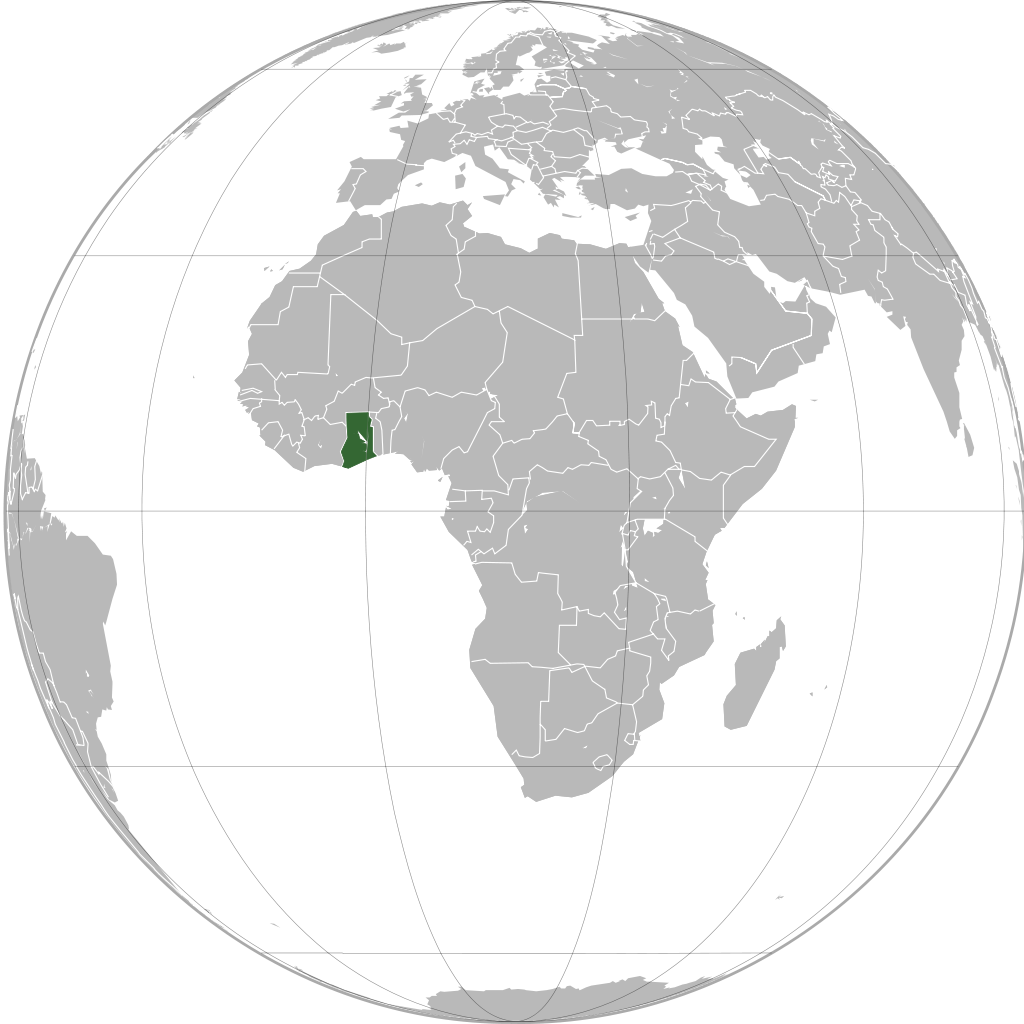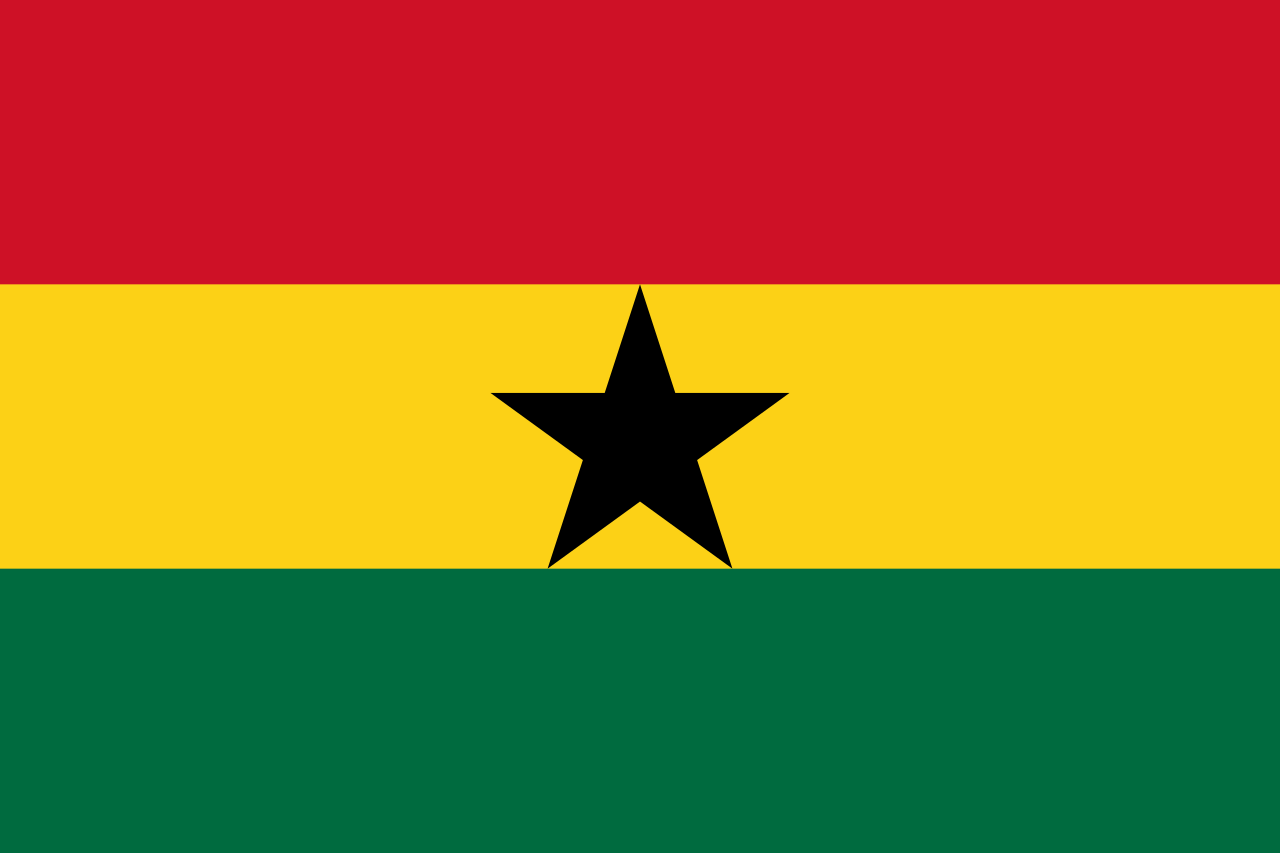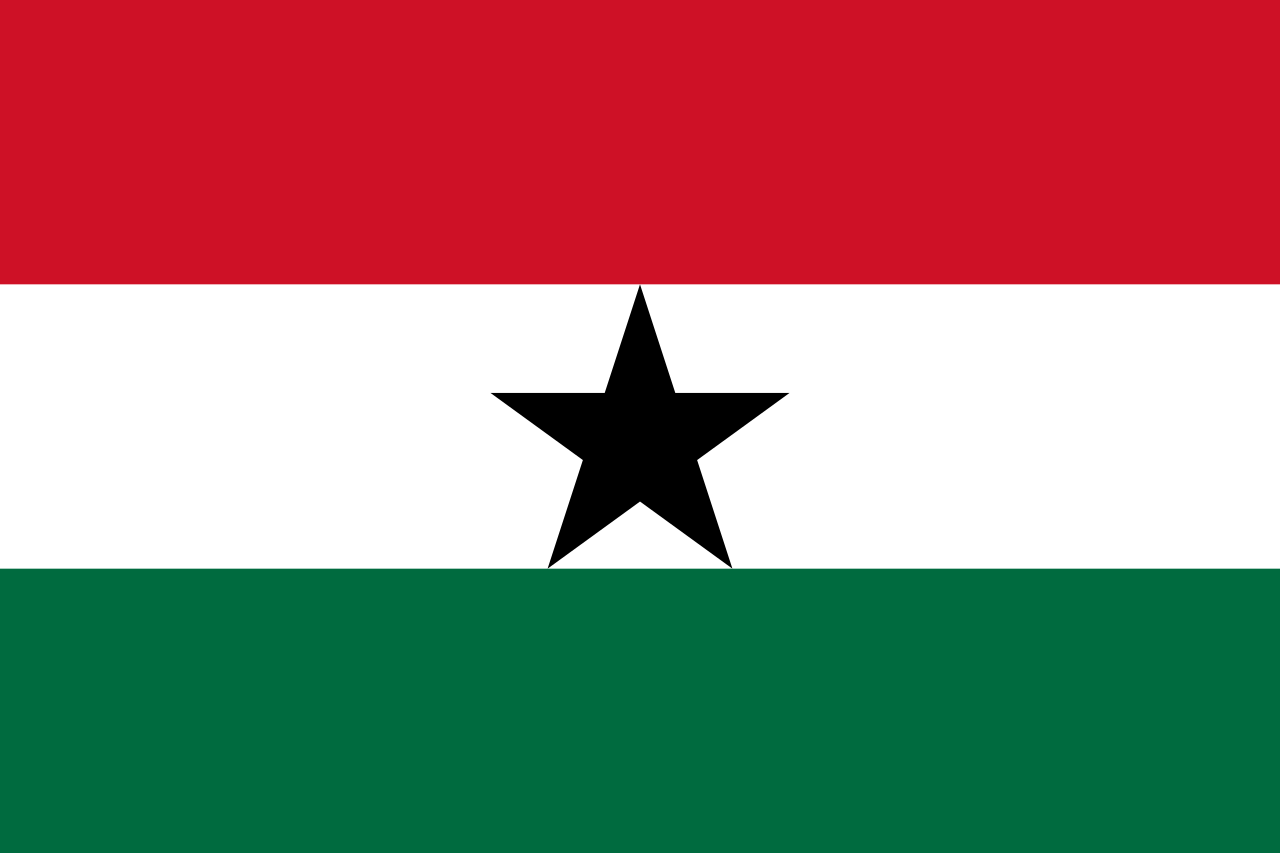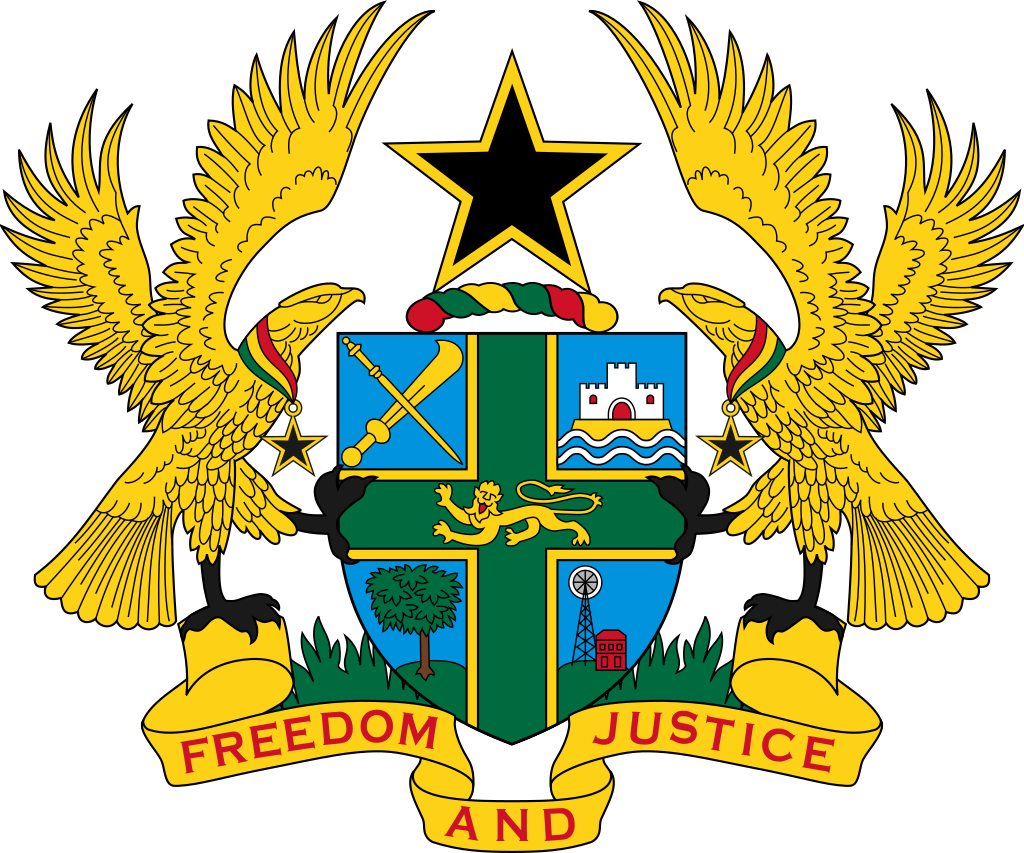More languages
More actions
| Republic of Ghana | |||||||||
|---|---|---|---|---|---|---|---|---|---|
| 1960–1966 | |||||||||
Motto: "Freedom and Justice" | |||||||||
Anthem: "God Bless Our Homeland Ghana" | |||||||||
 | |||||||||
| Capital and largest city | Accra | ||||||||
| Official languages | English | ||||||||
| Demonym(s) | Ghanaian | ||||||||
| Dominant mode of production | Socialism | ||||||||
| Government | Unitary one-party presidential republic | ||||||||
• President | Kwame Nkrumah | ||||||||
• Speaker of Parliament | Kofi Asante Ofori-Atta | ||||||||
• Chief Justice | Julius Sarkodee-Addo | ||||||||
| Legislature | Parliament of Ghana | ||||||||
| History | |||||||||
• Established | 1960 | ||||||||
• Dissolution | 1966 | ||||||||
| Currency | 1960-1965: Ghanaian pound 1965-1966: Ghanaian Cedi | ||||||||
| |||||||||
The First Republic of Ghana, officially known at the time of its existence as the Republic of Ghana, was a socialist state in West Africa from 1960 to 1966 established via popular referendum after the masses voted to end the Dominion of Ghana by transforming Ghana into a Presidential Republic. In the aftermath of the referendum, former Prime Minister Kwame Nkrumah would become the first President of Ghana. The Republic of Ghana was the first African nation south of the Sahara to obtain independence, and due to the successes of Nkrumah's socialist policies while in power, Ghana became a model-state for African independence movements and a hub for Pan-African philosophy.
History
1960 constitutional referendum
In the aftermath of the 1960 constitutional referendum, the Ghanaian electorate voted 88.47% in favor of the creation of the Republic of Ghana, thus officially abolishing the monarchy.[1] Prior to this development, Ghana was a formally independent British Dominion and the British Monarchy remained its head of state.
Government
Houses of Chiefs
For each region of Ghana, leaders of of the country's traditional communities are automatically appointed to a House of Chiefs. Houses of Chiefs are divided into a plethora of Traditional Councils consisting of specific tribes, and act as advisory boards to the government on matters effecting them.[2]
Supreme Court
The Supreme Court of Ghana was the highest court in the republic, and had original jurisdiction on all matters in which the enactment of policy was considered in excess of the powers granted by the National Assembly of Constitution of Ghana. Judges of the court were appointed by the President and were required to retire upon reaching the age of 65 years.[2]
National Assembly
The National Assembly was the unicameral legislature of the of Ghana and was elected following the its dissolution by the President if a new assembly wasn't elected within a period of 5 years. The parliament was responsible for electing the President of Ghana and its speaker, who was the presiding officer of the National Assembly. According to the 1960 constitution of Ghana, the National Assembly could consist of no less than 100 delegates.[2]
President of Ghana
The Presidency of Ghana lacked strict term limits as new presidential elections were only required on the event of the President's resignation, death or dissolution of parliament after its 5 year expiration date. As described in the constitution, the President is the commander-in-chief of the armed forces, has the power to appoint and dismiss cabinet members and can pass/veto legislation.[2]
1964 constitutional amendment
In 1964, the constitution was amended through national referendum, declaring the Convention People's Party the sole legal political party in the country and gave the Presidency the power to remove judges from office.[3] The result of the referendum was a 99.91% approval of the reform by Ghana's electorate.[4]
Administrative divisions
Economy
Planning
The Ghanaian economy under the first republic was transformed from a neo-colonized capitalist structure dependent on colonial powers for capital goods to an industrializing developing economy with increasing self-reliance. Domination of Ghana's manufacturing sectors by State-Owned Enterprises and collectivization of agriculture would reach its peak in 1966 before immediately being dismantled through mass privatization following the overthrow of Nkrumah's government. Development of Ghana's economy was guided by state managed 5-year development plans. Contrary to claims from the National Liberation Council which overthrew Nkrumah's government, the First Republic had already achieved economic stability restored conditions necessary for economic growth.[5]
Agriculture
In 1961, a cooperative society was established to the network of private traders and middlemen who controlled internal marketing. Prior to this development, the Nkrumah government had created the Union of Ghana Farmers' Council (UGFCC) to cover agricultural workers' interests and organize farmers behind the Ghanaian government. As cocoa continued to be the major cash-crop of Ghana and the driving force in its industrialization program, the UGFCC became centered around cocoa growing regions and was made the monopoly buyer of cocoa in the country.[6]
Industry and manufacturing
Since rising to power, Nkrumah's government and the ruling Convention People's Party considered eradicating the neo-colonial trade dependency on Western powers to be its top priority in order for Ghana to have true self-determination. The result of this was the exploitation of Ghana's vast natural resources like cocoa in an effort to fund industrialization projects to boost indigenous manufacturing capacities. Throughout most of the 60s, as the Nkrumah government continued to expand existing industries, build State-Owned Enterprises and joint ventures, as well as nationalize corrupt or failing industries led to rapid growth in Ghana's manufacturing sector and growth in state and joint ventures being 250% higher than private companies. By 1965, Ghana's private manufacturing sector was 7.1% while employment was up 90%.[5]



